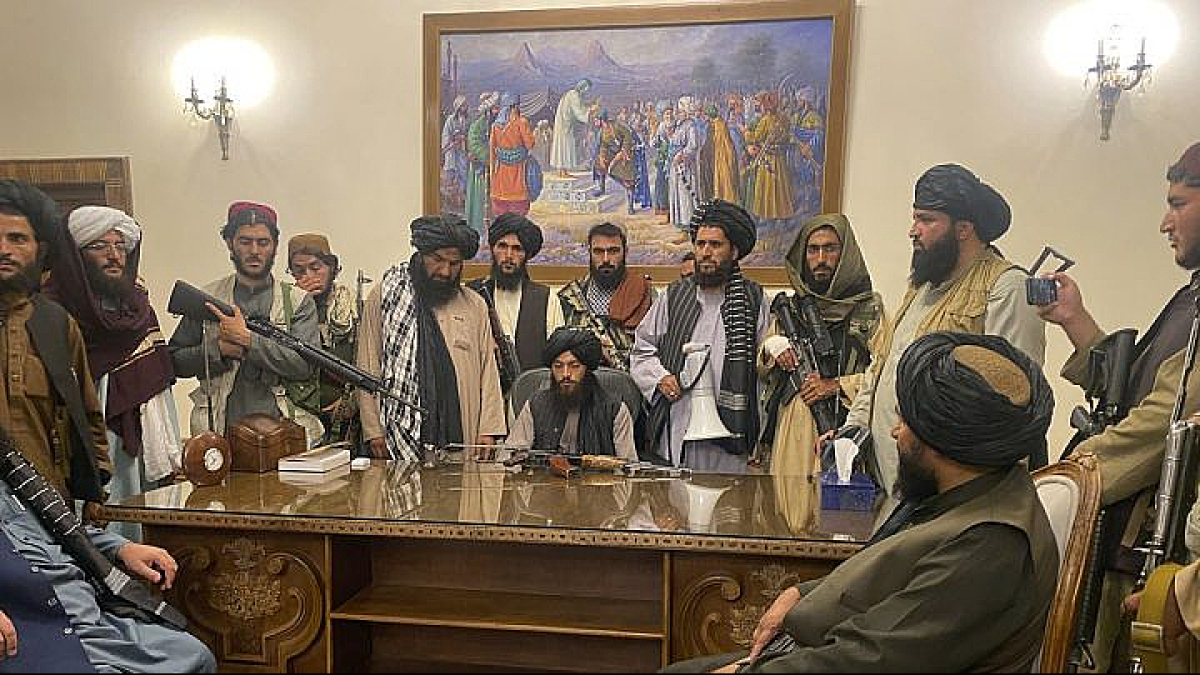 112
112
Afghanistan was indeed a bloodbath during the previous two decades, in which thousands of Afghans were murdered while nothing was achieved other than utter misery and devastation.
Political pundits draw parallels between the humiliating evacuation of American forces from Kabul Airport after two decades of occupation, which was supposed to bring democracy but instead inflicted untold atrocities and anguish on millions of Afghan civilians, and the fall of Saigon and the departure of the last American helicopter from the roof of the US Embassy and the swift takeover of South Vietnam by Communist Viet Cong guerrillas.
In an interview with CNN on the first anniversary of the Taliban’s takeover of Kabul, former Afghan President Hamid Karzai called the US withdrawal from his country a “disgrace” for the American nation. [i] Karzai has also added that despite mounting economic hardships, Afghanistan is currently in a more stable and peaceful situation.
As the Taliban marks a year since its return to rule, the war-ravaged nation has seen a relative improvement in security in rural areas [ii]. However, Afghanistan is rapidly engulfed in a catastrophic economic and humanitarian crisis.
Hence, to put it simply, Afghanistan today appears to be a boiling cauldron of peace, dread, international isolation, and looming economic downfall.
Afghanistan’s economic downturn started long before the Taliban overthrew the corrupt ancien régime. However, their ascent to authority has further pushed the 38 million-person nation to the verge of abject poverty and destitution. According to the reports, more Afghans are compelled to sell their infants or body parts amid the deteriorating economic crisis.
According to observers, this is mainly because the World Bank, the International Monetary Fund (IMF), and the US Federal Reserve have denied Afghanistan access to international finance. Moreover, the United States has frozen $9 billion worth of Afghan assets.
All these factors contributed to the complete collapse of the Afghan financial system and the cessation of foreign aid, which amounted to 45% of the country’s GDP. [iii]
According to UN statistics, severe hunger has put more than 20 million Afghans at risk, nearly half of the population, which has increased by 65% compared to last year. Also, the World Bank has warned in its new study that 69% of Afghan people cannot provide daily food, and 16% of Afghan households consume less than one meal daily. Global statistics also indicate that 59% of Afghans require immediate aid. If urgent action is not taken, by the end of the year, 97% of the Afghan population will slip below the poverty line. [iv]
In the meantime, Afghan children are the primary victims of the current chaotic situation. In May of this year, the United Nations announced that more than 1.1 million children under five in Afghanistan are at risk of severe malnutrition, and there is no effective medical care to deal with the affected children.
Since the first day of the Taliban’s control of power, the movement’s leaders have stressed their commitment not to allow Afghanistan to constitute a threat to other countries, highlighting their determination to foster cordial relations with all countries.
Moreover, they granted a general amnesty for all of the previous administration’s staff and allowed them to resume their positions. Nevertheless, there were allegations raised by the US, the EU, and Japan of the Taliban committing revenge killings against former Afghan security personnel. [v]
On the other hand, to officially recognise their authority, countries like Iran, Russia, and China urged the Taliban to establish an inclusive government representing all components of Afghan society, including ethnic and religious minorities, and respect for human rights.
Nonetheless, the Taliban, who mainly belong to the Pashtun ethnolinguistic group, has not yet made any meaningful efforts to share power with other ethnicities, continuing to govern unilaterally under a veneer of the Pashtuns’ reactionary interpretation of religion.
Despite the Taliban’s promises of a rosy future, ISIS-affiliated terrorists initiated a campaign of suicide attacks in the heart of the capital, Kabul, and in several Afghan districts, primarily targeting mosques and schools of the Shiite Hazara community, the third largest ethnic group in Afghanistan. These deadly assaults severely undermined the Taliban’s resolve to combat the ISIS terrorists.Everyone knows that empty promises will not bring back those who have perished or heal the lives that have been shattered by tragedy.
To exacerbate the already dire situation in Afghanistan, the Taliban has been subjected to significant criticism from human rights groups for restricting women’s access to public and private sector professions, as thousands of female employees were laid off in government institutions and the private sector.
Very few women are allowed to work only in required fields, such as hospitals, schools, law enforcement, and airports. At the same time, girls are prevented from attending public schools above the intermediate and secondary levels. Although the Taliban spokesman announced that schools would open for girls on March 21, 2022, the decision was postponed.
In fact, the Taliban’s top leadership, comprised of battle-hardened veterans, is hostile to any significant social reforms that could be interpreted as a symbol of surrender to their adversaries.
One year after seizing power, the Taliban continue to fluctuate between realpolitik and fanaticism:
“You have one (Taliban) camp, which is pushing ahead with what they are seeing as reforms, and another camp that seems to think even these meagre reforms are too much,” said Ibraheem Bahiss, an Afghanistan analyst with the International Crisis Group. [vi]
Atiqullah Zaman, an Afghan political commentator, believes that notwithstanding the grim aspects of the Taliban’s ascension to power, some positive developments occurred during their first year in power, most notably the cessation of bloodshed. He also noted that prevalent state corruption had vanished, and the warlords who had long terrorised the nation had been wiped out.
In addition, Taliban leader Mullah Hebtullah Akhundzada issued an edict prohibiting the cultivation of puppies and the use, sale, and production of any narcotics. [vii]
[iii] https://bit.ly/3A3PleL
[vii] https://bit.ly/3pKzBsx
Comment
Post a comment for this article